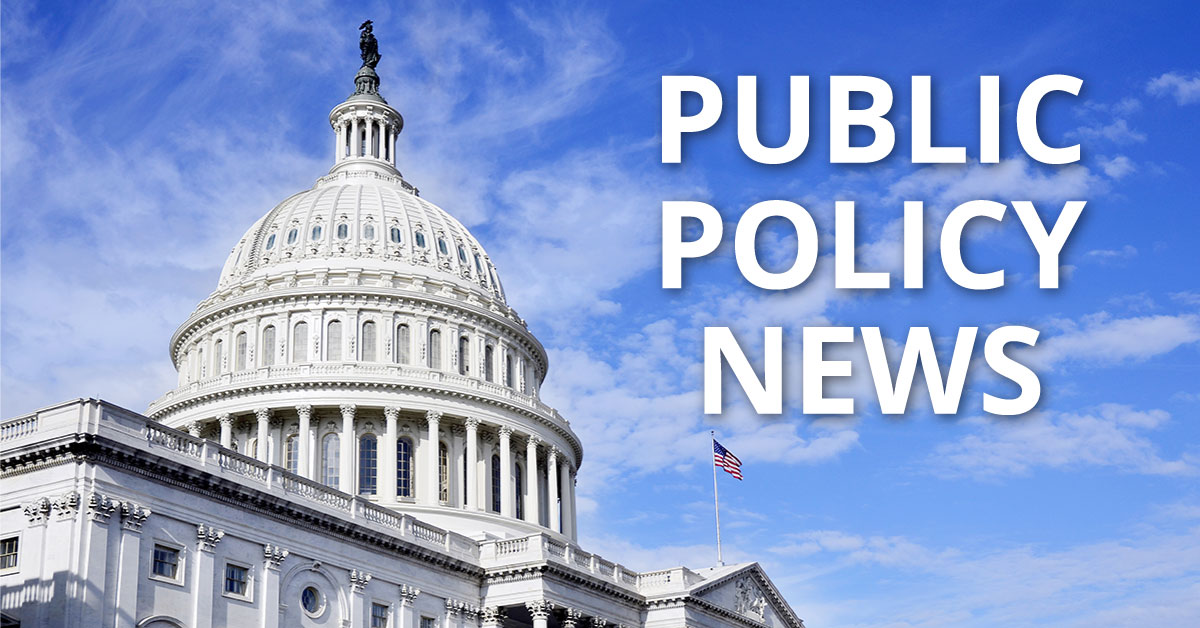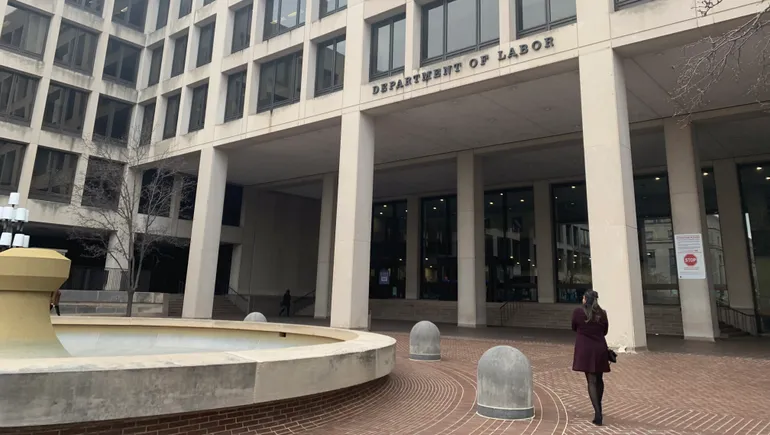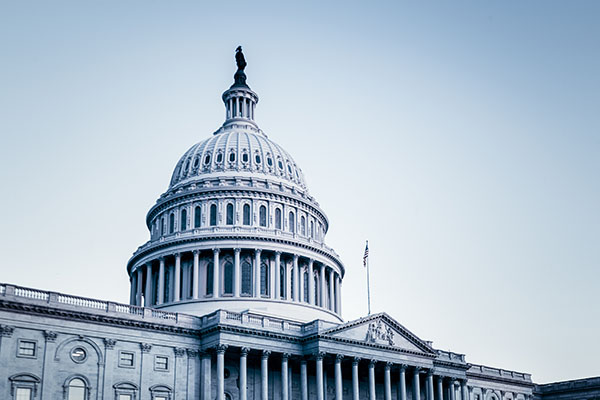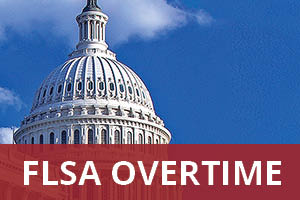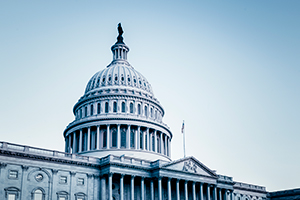by CUPA-HR | July 25, 2023
The Department of Labor (DOL) has accelerated release of proposed and final regulations as the agency strives to meet the self-imposed deadlines in the Biden administration’s Spring 2023 Unified Agenda of Regulatory and Deregulatory Actions (Regulatory Agenda). Multiple DOL sub-agencies are issuing rules and proposed rules in July and August on independent contractor classification, overtime pay exemptions, workplace inspections, and workplace injuries.
Overtime Pay Exemptions
As previously reported, on July 12, DOL’s Wage and Hour Division (WHD) sent to the White House Office of Information and Regulatory Affairs (OIRA) a proposed rule on “Defining and Delimiting the Exemptions for Executive, Administrative, Professional, Outside Sales and Computer Employees” (1235-AA39) for review. OIRA is part of the Office of Management and Budget (OMB) and is charged with reviewing the costs and benefits of regulatory actions. In the Regulatory Agenda, DOL targeted August for release of a Notice of Proposed Rulemaking (NPRM) on overtime exemptions. OIRA review signals DOL is trying to publish the NPRM at or close to that deadline.
While the content of the proposed rule has not yet been released to the public, we expect that the proposal will increase the minimum salary an individual must be paid to qualify as a bona fide executive, administrative, and professional employee exempt from the Fair Labor Standards Act (FLSA)’s minimum wage and overtime pay requirements.
WHD first announced that it planned to “update the salary level requirement of the section 13(a)(1) exemption” to overtime pay requirements within the FLSA in the Fall 2021 Regulatory Agenda (125-AA39). In early 2022, CUPA-HR and other employer groups requested that DOL hold stakeholder meetings before issuing any regulations. DOL held these meetings, and employer groups urged DOL to delay moving forward with changes to the overtime rule, which DOL did until July 12 when it sent the proposal to OIRA.
While OIRA may take up to 90 days to conduct a review, the agency generally completes review within 30 to 60 days. In the meantime, as with any proposed rule under review, OIRA is accepting input from stakeholders who would like to voice their potential concerns with the rulemaking. CUPA-HR will be requesting a meeting to reiterate the objections made to the rule in letters that CUPA-HR and other associations have sent to DOL since the introduction of the proposal in the Fall 2021 Regulatory Agenda. Most recently, CUPA-HR and 103 other signatories sent a letter to DOL in May 2023, requesting the abandonment or, at minimum, postponement of the anticipated overtime regulation due to the supply chain disruptions, workforce shortages, inflationary pressures, and shifting workforce dynamics that are already prevalent and could be exacerbated by the rulemaking. CUPA-HR has also participated in several DOL listening sessions on the matter.
Independent Contractor Classification
WHD announced in the Spring 2023 Regulatory Agenda that it plans to release the final rule for “Employee or Independent Contractor Classification Under the Fair Labor Standards Act” (1235-AA43) in August. While DOL has not sent the rule to OIRA yet, we expect it will do so any day now. WHD published the original NPRM on October 13, 2022, and allowed the public to provide comments on the proposal until December 13, 2022. Although DOL has not released the text of the final rule, we expect it will be substantially similar to the NPRM and will replace the existing Trump-era rule (1235-AA34) issued on January 7, 2021.
In evaluating whether a worker is an employee or independent contractor under the FLSA, the courts and DOL have long considered the following five factors: the opportunity for profit or loss; investment and permanency; the degree of control held by the employer over the worker; whether the work is an integral part of the employer’s business; and skill and initiative. In the Trump-era 2021 rule, DOL concluded two of the five identified factors — the nature and degree of control over the worker and the worker’s opportunity for profit or loss — are most probative in the analysis and should be considered “core factors” given additional weight. DOL asserted that this streamlined approach was consistent with how courts had historically applied the five-factor test. The 2021 rule also explained that whether the work is “integral to the employer’s business” depends on whether the work is part of an integrated unit of production and not whether the work is critical, necessary or central to the employer’s business, as the latter is subjective, confusing and difficult to apply.
DOL now asserts that the 2021 rule does not fully adhere to the text and purpose of the FLSA and thus intends to replace it with the new method outlined in the NPRM. This new method would shift away from the core factors test to a test in which the factors are all weighted equally and given full consideration. In addition, the DOL is reversing its position on the interpretations and clarifications of factors in the 2021 rule, including the aforementioned clarification on the integral factor.
Many in the business community filed comments opposing the NPRM and supporting the 2021 rule, and we expect that some of those same groups will challenge DOL’s final rule in court if it is substantially similar to the proposal.
Workplace Walkarounds
On July 17, the Occupational Safety and Health Administration (OSHA) sent the “Worker Walkaround Representative Designation Process” (1218-AD45) rule to OIRA for review. As mentioned above, this is an initial step in releasing the proposed rule, the target date for which was June. Again, we are not certain how long the OIRA review process will take, and OIRA is allowing for meetings with individuals and organizations interested in this NPRM.
Under current rules, a union may designate an employee to accompany an OSHA inspector during their facility walkaround. According to the Regulatory Agenda, this NPRM would allow an employee representative to accompany the OSHA inspector, regardless of whether that representative is a direct employee of the company subject to inspection.
Workplace Injuries and Illnesses
On July 17, OSHA released the text of the “Improve Tracking of Workplace Injuries and Illnesses” (1218-AD40) final rule, which was published in the Federal Register on July 21. DOL had projected in the Regulatory Agenda that it would release the rule in June 2023.
The rule amends OSHA’s occupational injury and illness recordkeeping requirements to mandate that certain employers electronically submit specified workplace injury and illness reports to OSHA on an annual basis. More specifically, the new rule will require employers with 100 or more employees in certain industries to electronically submit content from their OSHA Forms 300 and 301 once a year. To be included in the requirements, industries must meet certain criteria that establish them as high hazard. Meanwhile, employers with 20 or more employees in designated industries will continue to be required to electronically submit content from their OSHA Form 300A annually. Finally, employers with 250 or more employees in any industry will need to continue submitting content from their Form 300A on an annual basis.
OSHA plans to publicize the data from the annual electronic submissions. The data would be inputted to a searchable database after removing anything that could help identify the individuals in the reports. Employers will not be required to submit to OSHA details from Forms 300 and 301 related to employees’ names or addresses, the healthcare professionals involved, or the facilities where treatments were provided. In addition to these reporting requirements, the rule also updates the NAICS codes used by OSHA to select which industries should be included in these reporting obligations.
CUPA-HR will continue to keep members apprised of further details concerning the DOL’s advancement of its Spring 2023 Regulatory Agenda, along with opportunities for advocacy.
Share This Article:


